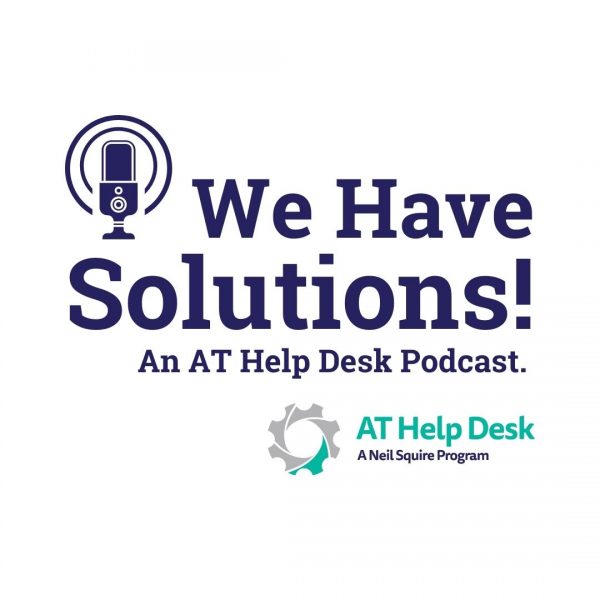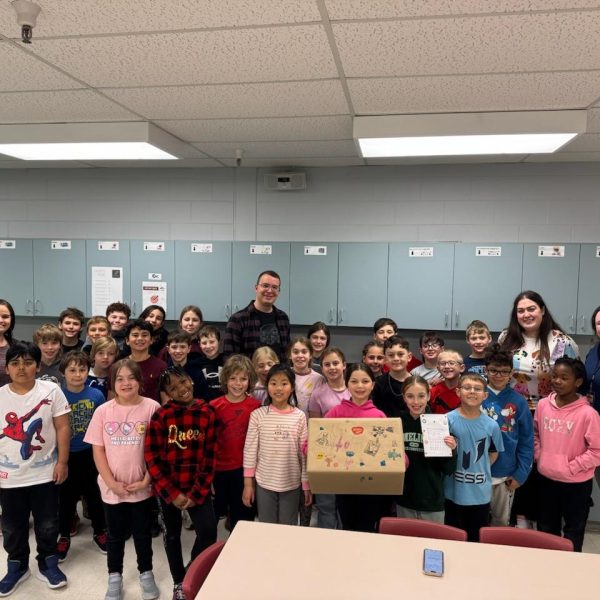New Hearing Aids Help Susan Participate in Job Interviews

Susan is looking for employment as a career development practitioner. She has hearing loss.
“Hearing loss impacts my ability to clearly hear the spoken word. This is a drawback in interviews, as well as a liability on the job,” she shares.
Through WorkBC Assistive Technology Services, she received funding for hearing aids with Bluetooth connectivity. She now feels much more confident in the job search process.
Jamie: An AI Meeting Assistant

With AI becoming more prevalent every day, there has been a significant rise of AI-powered notetaking/meeting tools. These tools are amazing for not only capturing everything that has been said during a meeting, but for allowing users to easily go back and search for specific information. And because these apps are designed to digitize verbal exchanges, they have a lot of potential in terms of offering users a more accessible and customizable meeting experience.
Jamie is an AI meeting assistant that turns any conversation into clear notes, transcripts, and action items. It works directly through your computer or phone, which means you never need to invite a bot into your calls and can use it with any meeting platform or even during in-person discussions.
WorkBC Assistive Technology Services Helps Carmen Take a “Big Step” in Her Employment Journey

Carmen is currently receiving training for employment through WorkBC. She faces barriers in her search for employment.
“I have a series of medical issues that impact my ability to work: Fibromyalgia, Chronic Fatigue Syndrome, POTS, Major Depressive Disorder, Anxiety, PTSD, and Long COVID. I have a very low window of tolerance for physical tasks and find increased pain,” she shares, noting that she can only work a limited amount of hours and days during the week.
“My Ability to Perform My Job [. . .] Has Greatly Improved”

Lorna works in healthcare administration, overseeing the day-to-day functions, patient and staff scheduling, and daily operations of a healthcare facility. She has hearing loss.
“This affects my ability to perform my job as my job is very public facing in a large and noisy environment,” she shares. “My work also involves attending and running meetings which I find challenging to keep up with the conversation.”
Clicker Literacy Tool

Today we are going to look at Clicker, a literacy tool for Windows, Mac, iPad, and Chromebook. The app is designed for students with writing difficulties, whether they are navigating dyslexia, speech and language challenges, autism, Down syndrome, or simply building early writing skills. Its design focuses on reducing frustration for learners who benefit from visual, structured, or language-supportive tools.
We Have Solutions! – Episode 40: Apps and Hardware for Stress Reduction and Productivity

On the latest episode of our AT Help Desk podcast, “We Have Solutions,” Seaver and Nakia explore a variety of stress reduction and productivity apps including Blitzit, Otter.ai, and Huxe.
“I Feel More Confident, Engaged, and Able to Contribute to My Team”

Kathy is a support worker, providing day-to-day assistance and advocacy for individuals experiencing mental illness and homelessness.
“I help clients access community resources, support their personal goals, and promote independence and well-being. I also collaborate with colleagues and service providers to ensure consistent, person-centred care,” she explains.
Artificial Intelligence as Assistive Technology

SCI BC recently sat down with our AT Help Desk team to learn how people with disabilities can use artificial intelligence (AI) to help solve everyday problems.
“I think AI is a really big opportunity for the world of disabilities,” says Seaver Stafford. Stafford, an Assistive Technology Technician for the Neil Squire Society, manages the AT Help Desk website and connects people with disabilities with assistive technology information. The AT website is part of the AT Help Desk program that launched in 2013.
New Hearing Aids Help Bonita Thrive Professionally

Bonita works as a registered foot and hand reflexologist, and she also creates organic soap, which she sells at retail stores and farmer’s markets. For both, her listening skills are vital, whether she is working one-on-one with a reflexology client or talking with customers in a busy market.
“The loss of my hearing is significant with regard to both my professions and has a dramatic impact on how I am able to perform in a reflexology setting, where the client frequently shares vital health and/or personal information, and regarding my organic soap when I am selling in a market setting. Customer feedback is vital to the creation of an organic product which people use on a daily basis,” she shares. “[It’s] frustrating and limiting.”
Neil Squire Solutions, Makers Making Change, Place Aux Compétences, and École Anna-Malenfant Collaborate to Design Custom Assistive Technology for a Client

English Version — la version française suit
A successful collaboration between Place aux compétences, École Anna-Malenfant, and Neil Squire‘s Makers Making Change and Solutions programs resulted in the creation of a simple yet effective 3D-printed adaptation for a Neil Squire client preparing to return to work with pain and limited left arm mobility.



